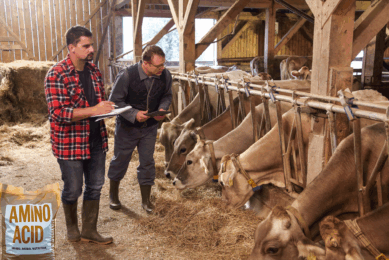High-protein canola meal beneficial for growing pigs

High-protein canola meal could prove to be a valuable ingredient in swine diets, this is according to a new study at the University of Illinois, United States.
“Canola meal is an excellent plant-based source of protein that is often included in swine diets,” explained Hans H Stein, professor of animal sciences at the University of Illinois in a press release by the university. The study was published recently in Animal Feed Science and Technology.
“In recent years, canola varieties have been developed which contain greater concentrations of protein than conventional varieties. Our study has provided new information on the nutritional value of high-protein canola meal.”
Thinner hulls than conventional canola seeds
High-protein canola seeds have thinner hulls than conventional canola seeds. As a result, the meal derived from these seeds has a lower proportion of fibre, and a greater proportion of protein and oil, than conventional canola meal.
Researchers in Stein’s lab conducted 2 experiments to determine how well pigs digest energy and amino acids in high-protein canola meal.
Digestibility of energy in high protein canola meal
Stein continued to say, “The digestibility of energy in high protein canola meal is greater than in conventional canola meal when fed to broilers and turkeys. But we do not yet have data for pigs for this particular source of high protein canola meal.”
He added, “We used a source of high-protein canola meal that was produced from a variety of high-protein canola that had been selected for low glucosinolate content, so we also tested if the reduced glucosinolates improved digestibility of protein and amino acids.”
Standardised ileal digestibility of crude protein
Stein’s team determined that the standardised ileal digestibility of crude protein in high-protein canola meal and conventional canola meal was less than in soybean meal (83%, 78%, and 93% respectively). The same was true for most amino acids. The digestibility of crude protein was greater in high-protein canola meal than in conventional canola meal, but there was no difference observed in the digestibility of individual amino acids.
High-protein canola meal contained 37.5% standardised ileal digestible crude protein, compared with 31.7% in conventional canola meal and 45.8% in soybean meal. Similarly, the concentration of digestible amino acids was greater in high-protein canola meal than in conventional canola meal, but less than in soybean meal.
Energy in high-protein canola meal
The concentrations of digestible and metabolisable energy were not different in high-protein canola meal (2,969 and 2,470 kcal/kg, respectively, on an as-fed basis) and conventional canola meal (2,632 and 2,305 kcal/kg). Both sources of canola meal contained less digestible and metabolisable energy than soybean meal (3,733 and 3,375 kcal/kg).
Stein said the results indicated that high-protein canola meal can be a valuable ingredient in swine diets. “High-protein canola meal supplies the same amount of digestible energy and more digestible amino acids for growing pigs compared with conventional canola meal.”
The paper, ‘Energy concentration and amino acid digestibility in high-protein canola meal, conventional canola meal, and in soybean meal fed to growing pigs‘, was co-authored by Yanhong Liu, Neil Jaworski, and Oscar Rojas.











